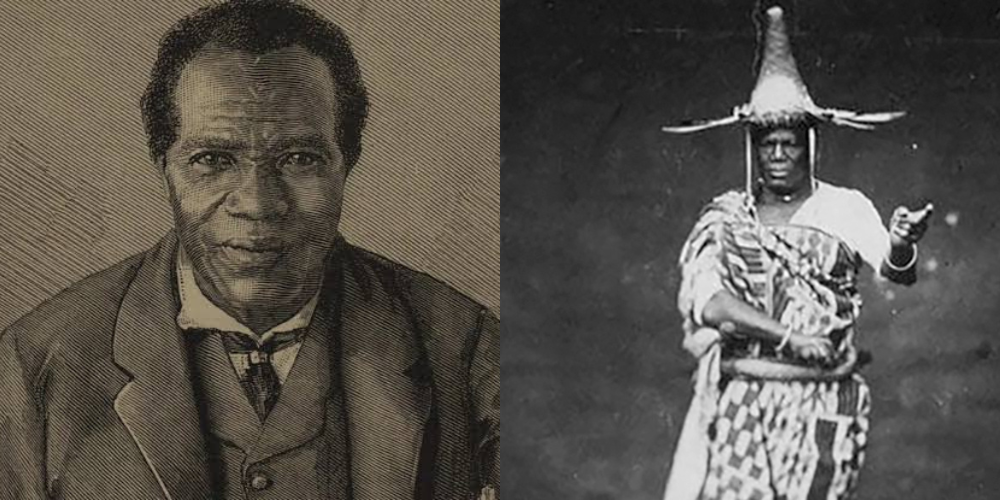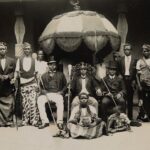Jaja
The Jaja of Opobo story is always narrated as the slave boy who became king. However, no one talks about how the British put an end to his tremendous reign.
Jaja was born in 1812 in Amaigbo, a place around the Orlu area. The tremendous breakthrough for Jaja started in bonny where he was sold as a slave to a rich house called the Anna Pepple House.
The socio-political structure of the bonny society gave Jaja the opportunity to dream. As the Bonny society doesn’t stand against the growth of slaves despite slaves being considered the least in their social class.
Jaja’s talent cupped with the structure of the Bonny society about slaves made him rise to the position of the head of Anna People House in 1863 when the position became vacant. The unanimous election of Jaja to the head position by the member of the Anna Pepple House made Jaja play a crucial role in politics at Bonny.
The Talent of Jaja and also as the Head of the Anna Pepple revive the position of the Anna Pepple house in the Bonny society. however, as time went on the house was caught in between the political rivalries that continuously occur in the Bonny society.
The rivalry turned into a conflict between the Anna Pepple House and another powerful house called the Manilla Pepple House led by another strong leader in Bonny named Oko Jumbo.
The Origin of Opobo
The conflict between the Anna Pepple house led by Jaja and the Manilla Pepplehouse led by Oko jumbo who had the backing of Amanyanabo of Bonny made Jaja leave Bonny.
Jaja left Bonny in 1869 after the conflict resulted in a civil war the same year as he was unwilling to fight. Jaja and his supporters left Bonny and migrated to another area called Andoni. He established a settlement around the Andoni area and named it Opobo.
Opobo in no time became a dominant town within the area all thanks to Jaja. Jaja with his ability in trading was able to control the significant markets within the hinterlands. Jaja was able to achieve this majorly on three major fact
- His ability to speak the Igbo Language and understanding of the Igbo culture gave him the advantage to have a good trading relationship with the Annang and Ibibio who were Oil suppliers and traders in the hinterlands.
- The ability of Jaja to monopolize palm oil trades in the hinterlands around Opobo.
- Jaja business ideas and trading ability.
On the 4th of January 1873, the British governor visited the area called Jaja the King of Opobo. The reason for this was that Jaja had become the richest African trader in the area and through his leadership, Opobo had become the Centre for palm oil trading even for Europeans.
Jaja and the British
The recognition of Jaja by the British as the king of Opobo soon became a problem for Jaja. As the British tried to take over the commercial activities around the oil rivers affecting the authorities of the locals including Jaja.
In 1884, the British offered Jaja a treaty, however, Jaja who suspected the British were about to make a foul play delayed signing the treaty until he fully understands it. The British consul Hewett responded by stating that ” The Queen does not want to take your country or any market she undertakes to extend her gracious favour which will leave your country still under your government”. at last, Jaja signed the treaty as the pressure from the British was too much. The attitude of the British to gain the Oil River states was basically for three reasons.
- The British quest to gain the oil rivers was to break the interest of the Germans and the French who were also trying to gain territories around the area.
- The second reason for the British pushing for Jaja of Opobo to sign a treaty was to break the tribes that had serious control over the oil rivers.
- The third factor however was to create a conducive environment for the British imperial power to fully take over the whole region. The British were able to do this through their different chartered companies.
The treaty of 1884 that Jaja of Opobo signed became the door that led to his downfall and death.
The End of Jaja of Opobo
In 1885 the British declared a protectorate over the Oil Rivers, this included the area where Opobo had dominance. However, Jaja of Opobo was still a strong trader whose commercial position could not be easily overturned. the British, however, took a decisive position by claiming that Jaja of OPobo stood against free trade in the area which contradicted the treaty signed in 1884.
For instance “The Liverpool merchants naturally reinforced the consul’s new interpretation of protection and alleged that Jaja indeed terrorised the natives over whom he claimed suzerainty in order to preserve the integrity of his trade monopoly”.
The British claimed that the treaty signed by Jaja in 1884 meant that Jaja could not prevent European merchants or chartered companies from doing business directly with African leaders in the hinterlands. Jaja disagreed with these claims by the British and it was at this point that the British sorted several means to dispose of Jaja and fully cut off his trading power in the area.
Hewett however claimed that he had fined Jaja for his action. The foreign office Assistant Under-secretary disagreed with Hewett’s punishment by stating “You should not have imposed on him a fine of thirty puncheons of oil as a penalty for breaking the treaty but should have imposed it on the general ground that his exactions are arbitrary and vexatious”.
however
In 1887 Harry Johnson became the acting consul after Hewett had taken a sick leave. The Liverpool merchant complained about the issue of Jaja to Harry Johnson after carefully listening to their complaint. Johnson also reported the case to the British foreign office stating that “Jaja is one of the most grasping, unscrupulous and bearing of mushroom kings who ever attempted to throttle the growing commerce of the white man with a rich interior”. Harry Johnson also accused Jaja of trying to sell his territories to the French.
Hewett who was on sick leave heard all that has happened and then decided that Jaja and all the other chiefs should be taught a lesson saying “they will at the same time learn to respect the power and the majesty of the Queen ”
The loyalty of the people of Opobo towards Jaja made it easy for him to survive several British attempts against his life. For instance, the acting consul of the British in 1885 Harry Johnston accused Jaja of an inhuman act against his people and plotted to sell Jaja Territories to the French which he failed at
In September 1887 Harry Johnson was able to succeed in cutting off Jaja’s opposition against the British power in the area by inviting Jaja to a meeting on a ship called HMS Goshawk. it was from this ship that Jaja was asked to make an ultimate choice between being deported or the bombardment of Opobo. with no option, he chose deportation however lord Salisbury of the British called the act by Harry Johnson against Jaja “Kidnapping”.
lastly
Jaja of Opbobo was deported to the West Indies where he continued to agitate for freedom. The people of Opobo also kept faith by continuously agitating for the return of Jaja.
However, in December 1887, the foreign affair office summarize the issues and analyse their power in the Oil Rivers. Jaja’s matter was revisited and in 1891 when the British decided to return him back to Opobo he died on his way home.
Jaja was first buried at the canary island at Tenefire until years later when he was exhumed and buried behind the place of Amanyanabo.




